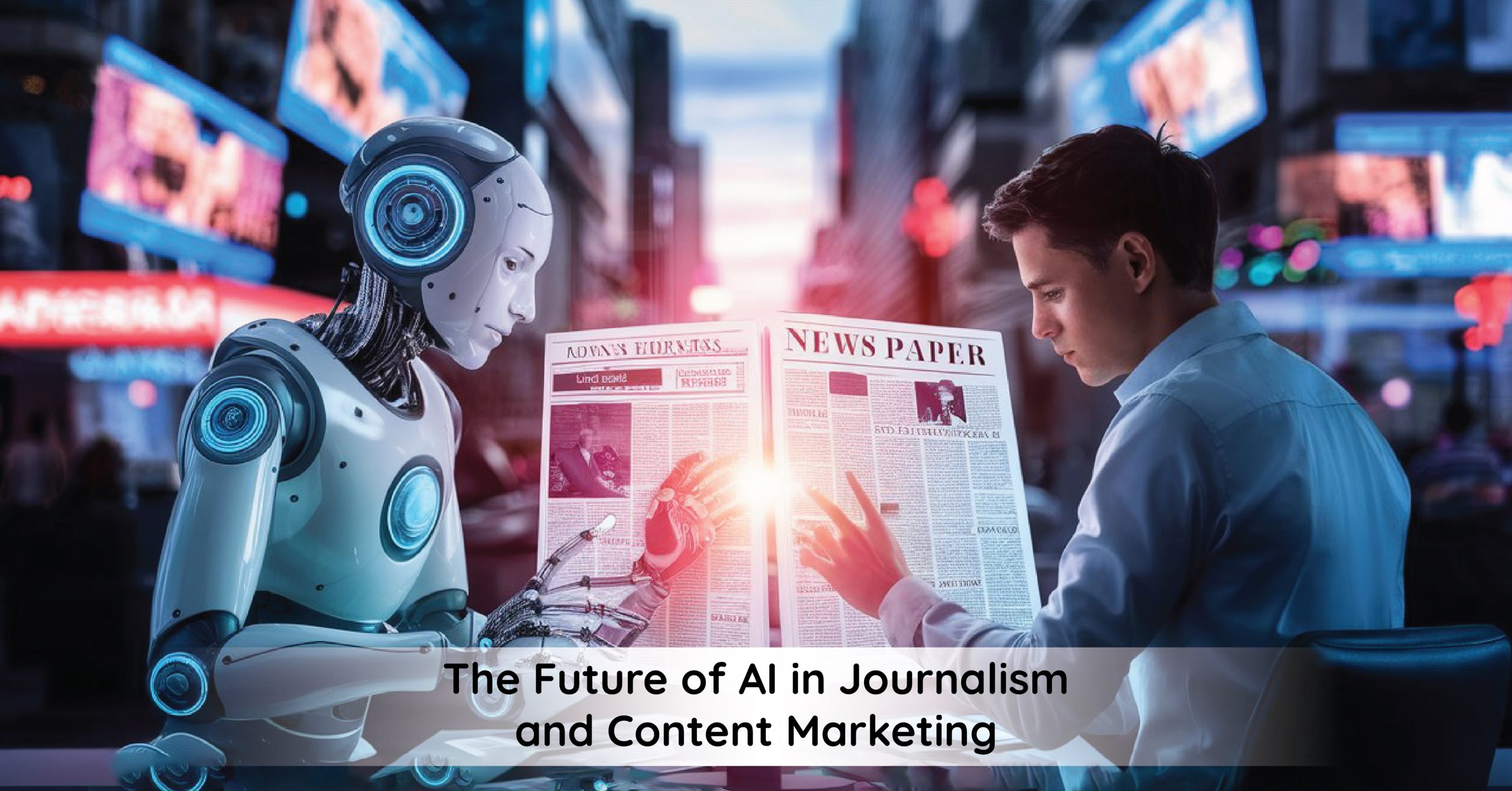Artificial intelligence is the trending technology of the modern age and is changing many fields; journalism and content marketing are not an exception to it. As artificial intelligence deepens, it also broadens various aspects related to news dissemination and coverage, writing and reading, or even in the course designing and implementing marketing plans and matrices. This blog focuses on the use of AI in the current trend, in future technology, and ethical issues.
AI in Journalism
Journalism is also already a field in which AI is proving to be highly useful. Such as in automated news writing, is already approaching the mainstream. Automated Insights by the Associated Press can write articles from datasets and is useful for data-driven simple stories such as earning revenues and sports results, among others. Such automation also helps to free up time for journalists and enable them to concentrate on the pieces of information that cannot be analyzed by a machine and still need proper investigation.
AI journalism is another domain that has been affected by advancements in technology; data journalism is the most evident example. AI can work on large datasets to identify trends and patterns that are extended for a human being to discover. Gaining this capability improves the qualitative nature of investigative journalism because reporters are able to provide more detailed and statistical information in their reportage.
Custom correspondence is also becoming more common. Artificial intelligence and advanced trends are used to study users and provide recommendations on the articles to share. This helps in making sure that the expected readers shall receive the content that will be most suitable for them to read, hence improving their level of satisfaction. Further, AI can help validate the source and filter out the fake news, which will help in preserving the credibility of journalism.
AI in Content Marketing
AI in content marketing is increasing the productivity and impact of marketing activities. Specialized AI applications such as ChatGPT and Jasper can create content without much human input about everything, ranging from blog posts and articles to social media posts. Moreover, through AI curation tools, the marketers are able to discover the content of interest with little or no strain in having to look for it.
Many consumers’ data is processed by machine learning algorithms and predictive analytics in order to segment the target audience and predict its actions. This makes it easier for the marketers to specifically address segments of the market to enhance accuracy and, thus, enhance the conversion values. AI also helps the marketers to provide relevant content and relevant offers to consumers because of their behavior and consumption pattern, which increases the efficiency of the customer engagement.
AI also assists marketers in selecting the most relevant keywords and improving the content for search engines. The tools in the analysis of the growth in the volume of search terms and competitiveness to build up the strategies for search engine optimization.
The following are the trends and ethical considerations that need to be observed in the future:
As for the future, several interesting trends that will impact the development of AI in journalism and content marketing are predicted. New methodologies in the technological aspects of natural language processing will lead to better content generation, contributing to the making of articles written by AI to be indistinguishable from the traditional ones. Real-time news reporting, including such areas as the coverage of live events and immediate updates of breaking news, will also be able to involve the use of AI. The merging of artificial intelligence with virtual and augmented reality will result in storytelling.
As for content marketing, AI will play the role of auxiliary help in creating new creative concepts and campaign scenarios. Sophisticated methods of personalization will bring extraordinary contextualized content delivery, and heuristic approaches to market forecasting and customer profiling will also be more effective. AI, together with such technologies as blockchain, will improve the credibility and openness of content.
However, most of the achievements in health care are associated with ethical dilemmas. Although the programs can be implemented to boost effectiveness, it is crucial to remember the role of people in journalism and marketing. Main concepts and ideas are personal, and things like creativity, instinct, and ethical decision-making cannot be delegated to artificial intelligence. Being able to make sure that these AI-written articles are fair and balanced to all parties involved, that everyone gets to have an equal opportunity, and being able to take action to show that there is transparency and accountability in creating these things is a very big challenge to solve for privacy.
Conclusion
AI has been expected to bring changes to the journalism and content marketing spheres for the better and open new opportunities for development and improvement. Through the enhanced knowledge of these advancements, specialists in these fields can benefit from AI as a tool for improvement and growth of their professions as well as enhancement of their contribution to their audiences.
